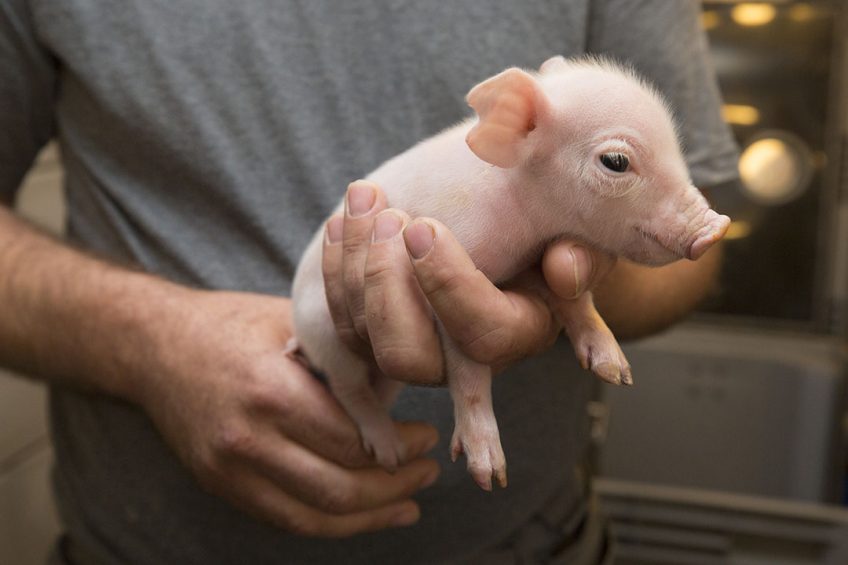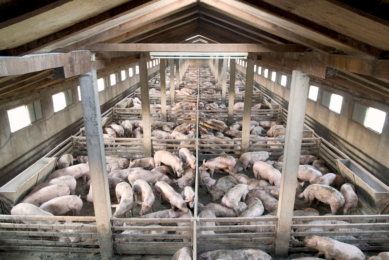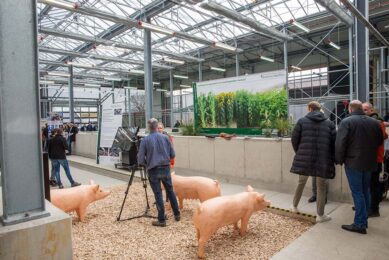Taking the life of a pig is never an easy choice

Euthanising animals is certainly not the nicest part of a pig caretaker’s job. How can we make sure that caretakers can be prepared and supported? Swine health and welfare expert Dr Monique Pairis-Garcia explains.
The term “compassion fatigue” was first defined in 1992 in the nursing field to describe the burnout and emotional toll experienced by those in caretaker positions. In the swine industry, swine caretakers ensure good animal welfare by caring for, treating and managing individual animals across all production stages.
Compassionate care for the pigs
Training programmes in the US focus on instilling compassionate care for the animals that we work with and continually improving upon our standard of care. However, these caretakers face unique challenges in that they are not only asked to treat and manage animals in their care, but they are also asked to euthanise those animals which they have providing care for. Previous work conducted in research labs and animal shelters has demonstrated that surveyed employees indicate that euthanising animals which they have provided care for is stressful because they have developed an emotional attachment through their daily interactions.
This ‘caring-killing paradox’ has become even more palpable this year with the need to implement depopulation on farms due to stop movements associated with Covid-19 outbreaks. It has been well documented in the literature that mass depopulation of farms can result in significant psychological impacts to those involved in the decision-making process.
 Farm visit: Outdoor UK farm faces both Brexit and Covid-19
Farm visit: Outdoor UK farm faces both Brexit and Covid-19
About 40% of the UK’s sows are kept in outdoor facilities. That type of high-welfare pig production is not having the easiest of times as factors like Brexit and Covid-19 coincide.
Foot-and-Mouth Disease outbreak in the UK
A fitting example of this includes the 2001 Foot-and-Mouth Disease outbreak in the UK. As we continue moving forward in the uncertainty that is, the US swine industry has not only focused on developing resources to prevent and mitigate the negative impacts of Covid-19 on farms, but has taken a leadership role in providing the resources needed to support human well-being.
The American Association of Swine Veterinarians (AASV) and National Pork Board has developed a web page providing resources addressing mental health and well-being for producers, veterinarians and allied industry.
This website includes pamphlets, webinars and hotlines all dedicated to providing support for those in need. Within this website, members have shared their personal stories and advice for others to listen and learn. In addition, the AASV has also mailed out a Wellness Wheel Activity to members to not only help assess well-being but help individuals develop an action plan to continually improve their well-being.
Appropriate resources for support
When challenging situations arise, the swine industry must focus not only on how to optimise animal welfare with limited resources, but also ensure the people behind these decisions are safe and supported. Taking the life of an animal is never an easy choice. Those that are tasked with this decision need the appropriate resources for support and the conversation on mental health needs to be heard.
The AASV has provided a strong commitment to promoting and enhancing well-being for their members and I encourage swine companies and organisations across the globe to do the same.



 Read more expert opinions at Pig Progress
Read more expert opinions at Pig Progress







